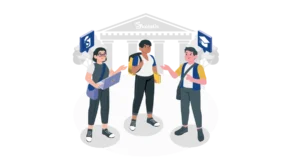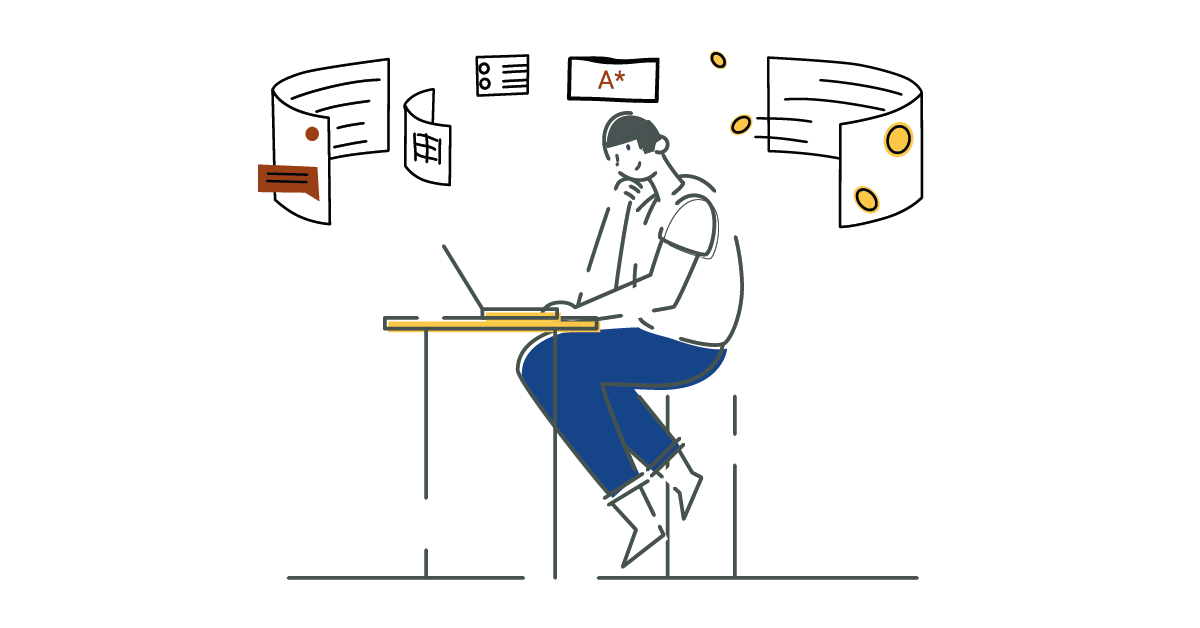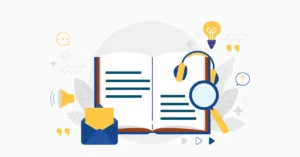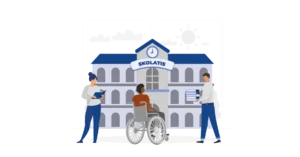
What is A Level?
If you are wondering what is A level, it is one of the most recognised pre-university pathways in the world,

Announcement: Cambridge IGCSE, O Level and AS & A Level June 2025 past papers are now available.
Home schooling (homeschooling) or home education is a form of education based at home. Parents teach their child at home, either full-time or part-time, with or without assistance from tutors.
Follow this comprehensive home schooling guide to get your home schooling journey started well.
Parents give many different reasons to home-school their children. The three (major) reasons selected by parents of more than two-thirds of students were:
Numerous studies have found that home-schooled students on average outperform their peers on standardised tests. Here are some statistics for reference:
* The correct usage of the “home school” term:
Home school is on its way to becoming a compound. For now, when home school functions as a noun, it is still two words, without a hyphen. When it functions as a verb, it usually takes a hyphen (-) e.g.: I home-school my children; my children are home-schooled. “Homeschooling” is the term commonly used in North America, whereas “home school” or “home education” is more commonly used in the United Kingdom, elsewhere in Europe, and in many Commonwealth countries.
Home schooling is legal in many countries. Some countries have highly regulated home schooling programmes, some have outlawed it completely. Therefore, here are a few important things to check from a start:
Choosing an appropriate curriculum for home schoolers is extremely important. Parents that chose home schooling are usually not satisfied with their local schools’ syllabus. As such, home school programmes that are based on international school curriculum have become increasingly popular.
The International General Certificate of Secondary Education (IGCSE) and International AS/A Level (IAL) are suitable as home school curriculum due to their high quality syllabus, being recognised worldwide, and are accepted by top universities around the world.
Another advantage of choosing IGCSE and IAL as home schooling curriculum is, home schoolers are able to sit for exams at any time whenever they are ready for exam. There are many exam centres around the world that home schoolers can choose from to register for exams. Since people are traveling and relocating frequently, the flexibility of education plays an important role.
Generally, IGCSE and IAL exams are available twice a year: June series or November series. The exam timetable is being divided into different administrative zones. You may find the Edexcel exam timetable, and Cambridge exam timetable on the respective pages.
It has come to our attention that many private tuition centres in Malaysia are offering IGCSE programmes as “Home School” / “Homeschool” centres.
These private tuition centres are running the centres as a school. IGCSE is used as the main teaching curriculum, and there is a full-day “schooling schedule”, from Monday to Friday. Thus many parents misunderstood it as an alternative “school” to the Malaysian traditional school.
Since the fees are way much cheaper than the international schools which also offer the same IGCSE curriculum, parents are rushing to send their children to these private centres ? thinking that they are sending their children to a “formal school” offering IGCSE curriculum. They started this process from Year 1/Grade 1.
After some years, for some reasons, when these parents wanted to send their children to an international/private school or national government school for Secondary education, they could not admit their children into any formal secondary school. These formal secondary schools were asking them for a formal Primary school certificate, which is not available from these private tuition centres.
The below message is just one of the many messages that we received all these years from the desperate Malaysian parents who do not know what to do.
*****
Subject:
Please help!
Message:
Hi, my son is 12 years old and currently studying in a small learning
centre taking Cambridge curriculum / syllabus for his full day
learning. I am trying to apply a bigger private school for him where
they also offering Cambridge curriculum, but the problem here is they
now reluctant to accept my son as their reason is they prefer Malaysia
public school (which they don’t offer Cambridge curriculum at all). Can
you please help us to direct to them (since that bigger school also
using the syllabus of IGCSE), or give my son a test and get a primary
IGCSE certificate in order to have strong supporting document? Please
help. Much appreciate for your prompt reply.
*****
It is important to know that, when you start home schooling your children, either part time or full time, you as a parent is going to take up the responsibility to ensure your children is having the needed education.
If you are not able to educate your children full time, you could always get assistance from some private learning centres / tuition centres in your local area. But please bare in mind that these private learning/tuition centres are there to help, they are NOT a formal school.
Home education is a marathon. You can’t give up halfway before reaching the finish line. For example, wanting to send your children back to school when you feel you cannot or do not have time to continue the responsibility anymore. Chances are, your children would get rejected due to the absent of formal primary school certificates.
So you may wonder, when/what is the finish line?
The finish line is the final exams at the end of the secondary level education (either IGCSE or O Level), and at the end of high school level education (either A Level or IB).
It is NOT at the primary level. Most parents make this mistake, thinking they could home educate their children up to the primary level, then send them to a formal secondary school later.
This is called ‘half way marathon’. Primary level is not the finish line.
So, make up your mind that you will finish the marathon. You can also take the ‘half way marathon’. Please continue reading to find out how to do that.
You can always follow your local national curriculum. Otherwise, Edexcel iGCSE, Cambridge IGCSE or O Level , Edexcel International A Level, and Cambridge International A Level, are all good choices for home schooling.
Edexcel’s iGCSE syllabus and International A Level syllabus are more suitable for the current international audience. You will find interesting content addressing the global arena, stable and well-developed syllabus, and with highest standard as universities’ entry requirements.
Children who learn global facts at an early age would be more likely to be open minded and able to mix with and respect other cultures.
Once you have chosen your curriculum/exam board, you need to plan your teaching programmes from start to finish.
It might sound intimidating for a start, however, if you plan well, it would be very fun and rewarding.
Here are some suggestions you could use:
Generally, primary Year/Grade 1 would start from age 6/7, depending on which country you are residing. In our example, we will stick to age 7 as the standard Year/Grade 1 age for most of the countries worldwide.
You may choose to educate your child for 6 year primary programme, which is a norm practice and minimum requirement internationally.
Your child would finish primary programme at age 12. However, your child would NOT obtain any primary school leaving certificate, nor any formal primary exams certificates at this stage.
If you think these certificates are important, please plan to register your child into a formal primary school at Year/Grade 5. In this way, your child would be able to proceed to Year/Grade 6 and sit for the formal primary exams.
You must register your child at Year/Grade 5. As there is no schools in the world would take new students in Year/Grade 6.
These certificates might be helpful if you suddenly can’t cope with the teaching, nor have anymore time to complete the secondary programmes by yourself. If you want to register your child with any formal secondary schools, you certainly need those certificates.
This is for the ‘half way marathon’. Please put this in mind from the start.
Once you have accomplished primary programme, it is time for you to start Lower Secondary programme. At this point of time, it would be Year/Grade 7 for schooled children
Lower Secondary programme can be quite flexible if your child has very strong basic and could cope faster.
The general Lower Secondary programme lasts for 3 years, e.g.: Year/Grade 7, 8 and 9.
If you think your child could do 2 years only, then proceed to the Upper Secondary programme, you are more than welcome to do so.
But please know that, we do not encourage speedy zooming through this stage just to get your child graduate faster. What is the point at the end of the day? Is entering university at very young age a vital and meaningful goal to achieve? Guess not.
If your child follow the normal 3-year Lower Secondary programme, he/she would be 15 years old at the end of the programme.
If you make a short cut, just do a 2 year programme, then your child would be 14 years old at the end of the Lower Secondary programme.
Again, your child would NOT obtain any formal Lower Secondary certificates, nor this is required for the final exam in IGCSE / O Level.
This is where the stamina to keep going on for home education gets low, and problems would arise if you want to send your child to any formal second school. Since your child does not have any formal primary certificates (assuming you did not get one for them from the suggestion above), no schools would accept him/her.
This is a 2-year programme, generally. This is where the IGCSE / O Level programme starts. For the schooled students, it would be Year/Grade 10 and 11.
Again, you might accomplish the whole IGCSE / O Level programme in just 1 year - that is entirely up to the capability of your child (not how parents want it, sorry 🙂 )
Once your child is ready to sit for the final exam, search for the nearest exam centres in your local area. Your local British Council is the best option for private candidates. If you cannot find any British Council near you, you can always try to approach any registered school which accepts private candidates to sit for the exams.
It is always good to know all the exams registration key dates, so you don’t missed out the registration closing dates. Bookmark this exams registration key dates page, and know all the dates by hard.
If your child follow the normal route, he/she would be 17 years old when he/she sits for the final exams. Otherwise, cutting short a year, would make him/her sitting for the exams at age 16 - that is the benefit of being home educated.
Finally, this is where your child obtain the official IGCSE / O Level certificates as a home-educated child. This marks the end of your journey in home education for your child, congratulation!
As you can see now, home education is a marathon actually. You need to have the strength and stamina to keep going for 10/11 years (starting from Year 1-Year 11) until your child obtain the one and only official exam certificate in your child’s life. This certificate will be used for further studies, either A Level or any other equivalent level.
Normally top tier universities would require A Level certificates (or its equivalent such as International Baccalaureate (IB), sixth form etc.) as entry requirements. At this stage, your child would be able to continue A Level self-study; since he/she has completed the final stage of secondary school home education.
Read further on Edexcel International A Level and Cambridge International A Level guides respectively.
Getting ready for exams can be stressful. Follow our guides on how to handle your stress when exam is approaching. (We guarantee you will feel lighter after reading the post 🙂 .)
Our valuable A* resources had produced thousands of A* scorers around the world. Check them out below.
A* Model Answers:
Our internationally loved exam model answers had helped thousands of students in scoring A/A*. Schools and teachers worldwide have used these resources to aid in their teachings. Learn what an A* answer like, copy the style and score A* in your exam.
Online Courses:
Our word-renowned IGCSE and AS/A Level courses had produced more than 1100 A/A* scorers worldwide. They are suitable for schooled or home-schooled candidates, and as full course or revision course.
Past papers:
We have the most complete past exam papers library on earth (no kidding!). Choose your exam board and download everything with one click.
Subject syllabus:
Get the latest exam syllabus and plan your study accordingly.
Key Dates:
Find out the exam registration and results released key dates for IGCSE and AS/A Level.
Exam Timetables:
Check your administrative zone, the exam dates and time. For both IGCSE and AS/A Level.
Exam Centres:
Find and locate the nearest exam centre for your location.
Need more guidance? Feel free to read the homeschooling FAQs to understand more on what you can do. Alternatively, simply drop us a message at the comment box below, one of our friendly team members will attend to you within 24 hours.
We hope this article could save some lives, as we are heart broken to hear stories like the above Malaysian parents.
All the best in your marathon - just remember that we are always with you in your marathon! 💪
Join 62,169 (and counting) IGCSE & AS/A Level subscribers who've taken our insanely valuable FREE email courses. Learn exam tips & score A* in your exam!
Join 62,169 (and counting) IGCSE & AS/A Level subscribers who’ve taken our insanely valuable FREE email courses. Learn exam tips & score A* in your exam!
Noor
Noor
Kanishka Bhindora
India
Kanishka Bhindora
India
Sidhant Kumar Suar
Sidhant Kumar Suar
Archit Agarwal
Archit Agarwal
Swad
Swad
Suhas Kamath
Suhas Kamath
Sandy
Sandy
Pei Feng Choo
Malaysia
Pei Feng Choo
Malaysia
Akshit Philip
Bahrain
Akshit Philip
Bahrain
Akshaya S T
Singapore
Akshaya S T
Singapore

If you are wondering what is A level, it is one of the most recognised pre-university pathways in the world,

Preparing for your IGCSE English as a Second Language (ESL) exam can feel daunting. You are not just learning grammar

Choosing the right educational pathway for your child is one of the most significant decisions a family can make. In

The IGCSE English First Language exam places a strong emphasis on creative writing, with writing descriptive and narrative essays being
184 responses
Hello, my name is Lia and I’m 13. I am currently studying in grade 9 (Y.10) in a thai school with a special International Program (Cambridge Examination (IGCSE)), I am french, and I just have tested ESL. My Mom would like me to test 4 more IGCSEs next time (may-june) but I am not sure I am capable. I was wondering if the Cambridge Program had a homeschooling program on computer (like khan academy) because my Mom does not have time to teach me and I would like to be able to study for IGCSEs and A/As levels easily ? Thank you
Hi Lia,
We are sorry that we do not have courses for computer related subjects. What we could suggest you is, you may find out which school is offering this subject and willing to take private candidate, you could enrol to study with them.
Please find out registered Cambridge schools here: https://www.cie.org.uk/i-want-to/find-a-cambridge-school/
Other than the computer subjects, you can always register other online courses here: https://www.skolatis.com/what-is-igcse/
Hello Admin
I am from New Delhi and wish to home school my son of 12 years who is in grade 7. Pls guide.
Hi Raj,
Please let us know what do you need.
I am from Chennai, India. I want to have homeschooling for my daughter who is 4 years old.
1. What is the correct time to start homeschooling
2. Should Parent sit with student or student can learn from live / recorded video
3. Is the school completion valid / acceptable for college admissions in India and Abroad
Hi Guruprasath,
Here are the answers to your questions:
1. There is no “correct time” to start homeschooling. You may start anytime. However, if you wish to start homeschooling from year 1, you need to have a plan for your daughter from year 1 until year 11, which is the IGCSE exam year. If you decided to send your daughter to a secondary school halfway through the homeschooling, she might face problem in getting admission. As secondary school would need a primary school certificate as entry requirement, which she does not have due to starting homeschooling from year 1.
2. That would depend on the needs of your child. Some children need personal guidance, while some can study on their own. Parents play an important role in homeschooling. Even though the kid could study by him/herself, parents still need to check on them to make sure they are on track.
3. IGCSE / O Level certificates are widely recognised. You can always call up your local and abroad universities to confirm on that.
Hi – Can I please have a list of Home Schools in Malaysia, their location and the Fees they charge.
Hi,
We are sorry that we do not have such list.
Hi,
Can Malaysia students study online and get the certificate from ICGSE?
Hello Kelly,
Yes, definitely. We have got many Malaysian students studying with us and sit for the IGCSE exams privately.
Please check out the online courses here: https://www.skolatis.com/cambridge-igcse-revision-courses/
I am looking for a home schooling option for my daughter who will turn 15 in a few months. Can she take the IGCSE exams if I start her homeschooling now?
Thanks a lot for your advice!
Shobha
Hi Shobha,
Yes, she can sit for the exams whenever she is ready.
We strongly suggest you to first check with your local British Council on: available subjects for your local area, exam registration dates, fees etc etc…